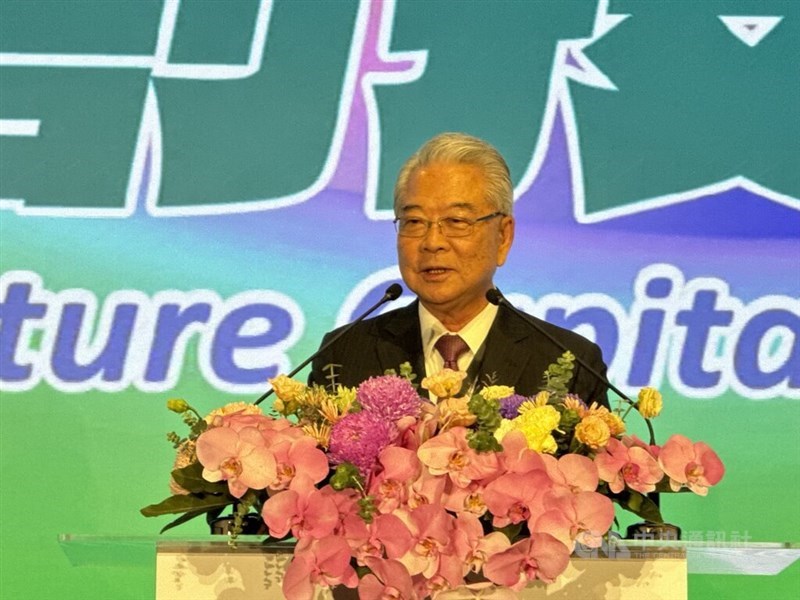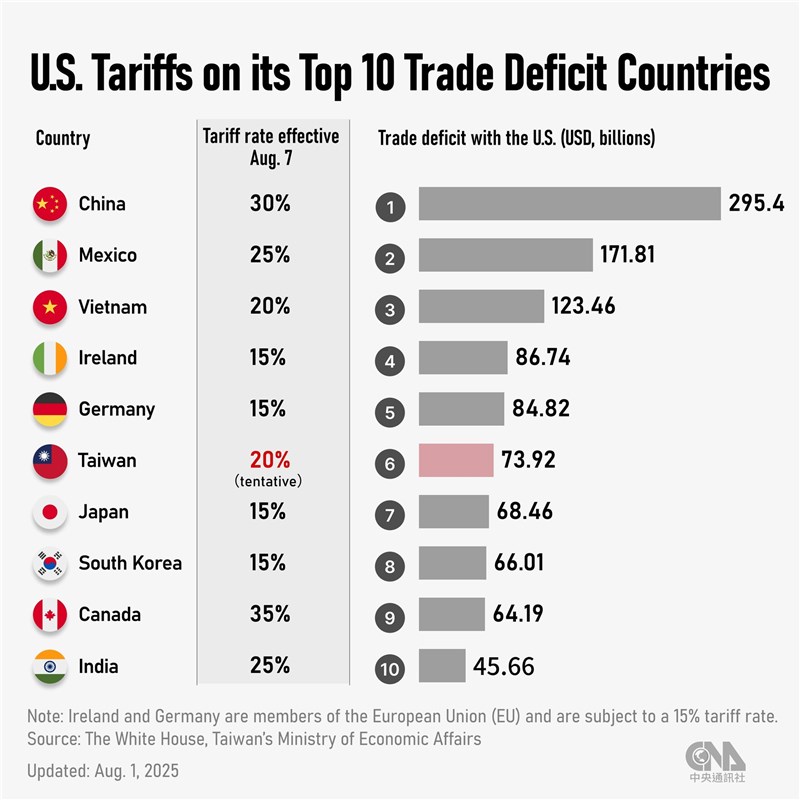
Taipei, Aug. 12 (CNA) Rock Hsu (許勝雄), founder and president of local electronics conglomerate Kinpo Group, on Tuesday urged the government to protect Taiwan's semiconductor industry during its negotiations with the United States.
Speaking with reporters on the sidelines of the 2025 Taiwan Venture Capital Summit, Hsu said that the semiconductor industry needs protection as it has played a critical role in Taiwan's economic development.
● Several semiconductor firms cautious about Q3 amid tariff concerns
Hsu said the government should balance seeking a lower tariff from the U.S. and other economic benefits by not making too many concessions during negotiations with Washington that would hurt Taiwan's global competitiveness.
He said it was understandable that Taiwan would have to pay a price to get a lower tariff, but the negotiating team should know how to protect the country's interests.
In the first seven months of this year, semiconductors accounted for 32.3 percent of Taiwan's total outbound sales with a value of US$109.78 billion, up 23.5 percent from a year earlier, according to the Ministry of Finance.
On Monday, Vice Premier Cheng Li-chiun (鄭麗君), who led a Taiwan delegation to the talks with the U.S., said the government will continue the negotiations to bring down a blanket tariff, currently set at 20 percent, and to seek the best position on a tariff planned by the White House on semiconductors.
In April, the U.S. launched an investigation under Section 232 of the Trade Expansion Act of 1962 into a possible tariff on semiconductor imports.
Meanwhile, last week, U.S. President Donald Trump said that Washington will place a tariff of about 100 percent on imported semiconductor chips, but "if you're building in the United States of America, there's no charge."
Among Taiwan's chipmakers, Taiwan Semiconductor Manufacturing Co. (TSMC) is likely to secure an exemption due to its massive investments in the U.S. state of Arizona, including an ongoing US$65 billion and a pledged US$100 billion.
Hsu said many Taiwanese firms are either investing or planning to invest in the U.S. market, while they have to face challenges such as high production costs and a wide cultural gap.
He added that the U.S. has to be aware that it is not easy to duplicate Taiwan's 24-hour-a-day working culture.
Hsu said old economy industries, such as the machinery and textile industries, also need protection, adding that the government should cap the strength of the Taiwan dollar's appreciation to mitigate the impact of U.S. tariffs.
Echoing Hsu, the Chinese National Federation of Industries (CNFI) suggested that Taiwan's government freeze an electricity rate hike in September and postpone carbon fee collections, which are scheduled to start in 2026, to ease the business sector's financial burden.
The CNFI added that the government should allow the Taiwan dollar to depreciate by at least 10 percent to raise Taiwan's exporters' competitive edge.
In addition to the 20 percent tariff, the levy has been added to preexisting most-favored-nation duties and industry-specific trade remedy tariffs from Aug. 7.
The government's negotiating team has vowed to seek a tariff stacking relief during the future talks with the U.S.

- Society
Public can apply to opt out of NHI data use for research: NHIA
08/12/2025 06:42 PM - Culture
Chen Shu-fang named Golden Horse lifetime achievement award winner
08/12/2025 06:11 PM - Culture
Chinese tourists flock to Kinmen for anime movie
08/12/2025 05:46 PM - Business
Taiwan shares edge higher ahead of U.S. inflation data
08/12/2025 05:35 PM - Cross-Strait
Taiwan's interior minister clarifies China 'recognition' comment
08/12/2025 05:28 PM